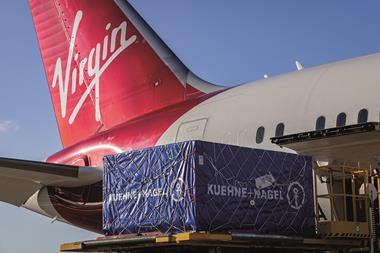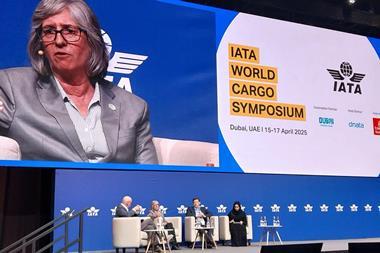UK freight forwarder group BIFA has "numerous concerns" over the progress of a new system that will replace the existing Customs declaration process.
BIFA director general Robert Keen said it is concerned that progress on the development of the new system has been inconsistent, with periods of activity and progress, and then little concrete news.
The group also hit out at the lack of involvement of the end users of the system, like freight forwarders, who will be responsible for entering the declarations.
"Despite initial assurances from [UK Customs] (HMRC) to the contrary, it is clear that the new system will require more significant changes to commercial software systems than previously envisaged.
"To give a simple example, a declaration on the current system - Customs Handling of Import and Export Freight (CHIEF) - requires the completion of 59 data fields, whilst a declaration on the replacement system - Customs Declaration System (CDS) - will consist of 78 data fields for import and 65 for export declarations.”
The development of the new system includes many stakeholders – HMRC, IBM, community systems providers (CSPs), numerous software providers and representatives.
Keen added that some of the CSPs and software providers have already highlighted the difficulties faced in developing the new system, the distinct lack of clarity regarding some of the data elements and the incomplete nature of some of the development work.
Added Keen: "HMRC has recently announced its proposed plan for completing delivery of the new Customs Declaration System and migrating traders to the new platform, which requires all traders to migrate from CHIEF to CDS by September 2020 in order for HMRC to meet its requirement to turn off CHIEF in March 2021 when the current contract ends.
"We have heard from CSPs and other software developers, and HMRC itself, that this timeline is challenging and understand that HMRC has requested software developers and CSPs to expedite their plans to deliver and assure the necessary changes to IT systems and business processes without compromising the integrity of the border, or the flow of international trade."
BIFA casts doubt over UK government’s Brexit customs training funding
BIFA agrees with Confederation of British Industry’s Brexit warning
BIFA welcomes UK Customs’ decision to extend Transitional Simplified Procedures
Based on currently available information, BIFA is challenging HMRC, in conjunction with the IT sector, to identify all the problem areas and formulate a plan to resolve them, whilst agreeing a realistic time-frame to deliver the new system, fully developed, stable and tested. It also wants urgent consideration to be given to involve end-users to ensure that the outcomes actually work in practice.
“On top of all these issues, we have to factor in the increasing likelihood of a no-deal Brexit, and the demands that it will put on our sector," Keen added.
“In this scenario it has to be accepted by all that the implementation of CDS will have to be delayed, whilst we are using existing systems to facilitate cargo movements and communicating with the various government agencies to allow them to perform their role to collect revenues without compromising the integrity of the border, the flow of international trade, or frontier security.”
Last week, BIFA also questioned whether funding made available to train Customs agents was enough.















